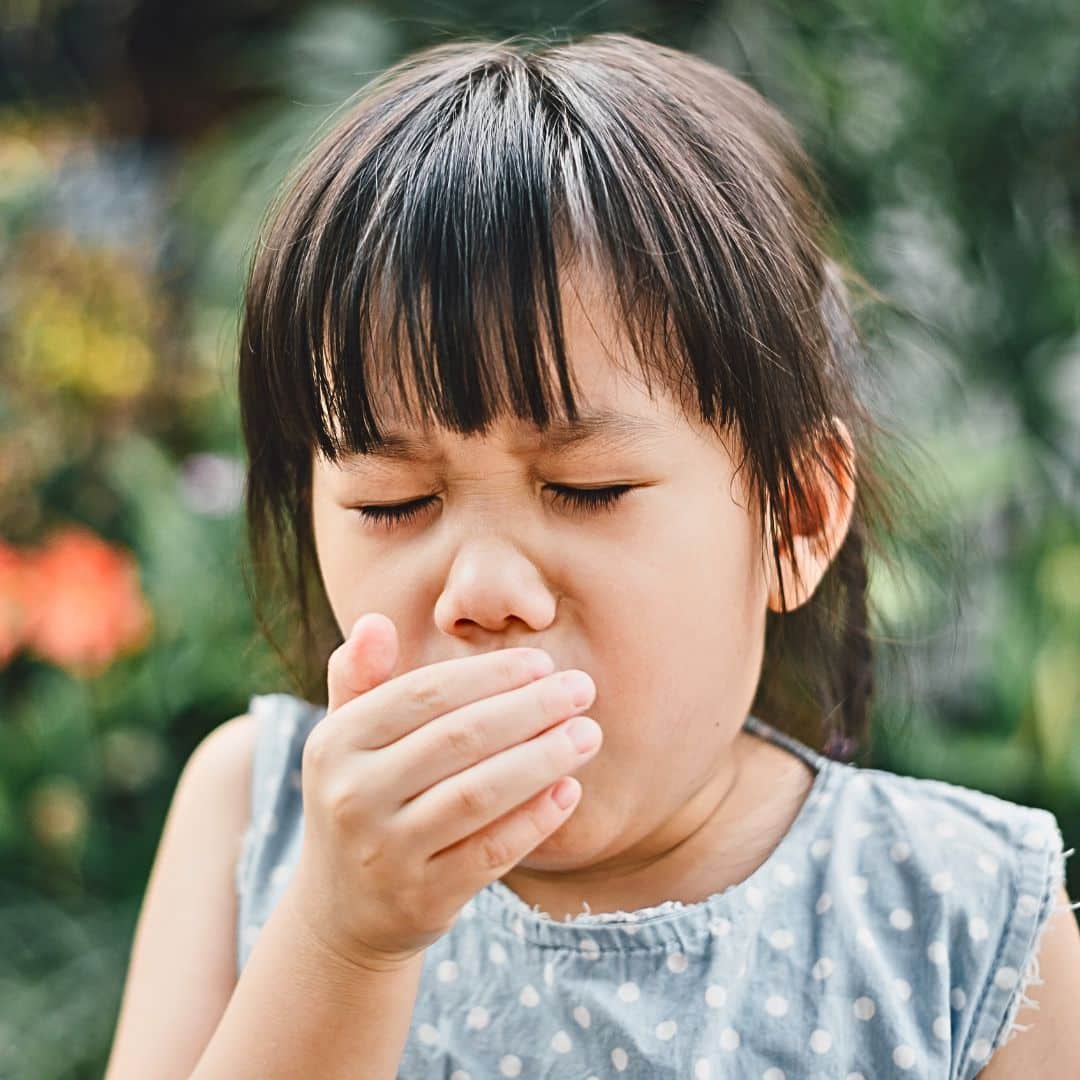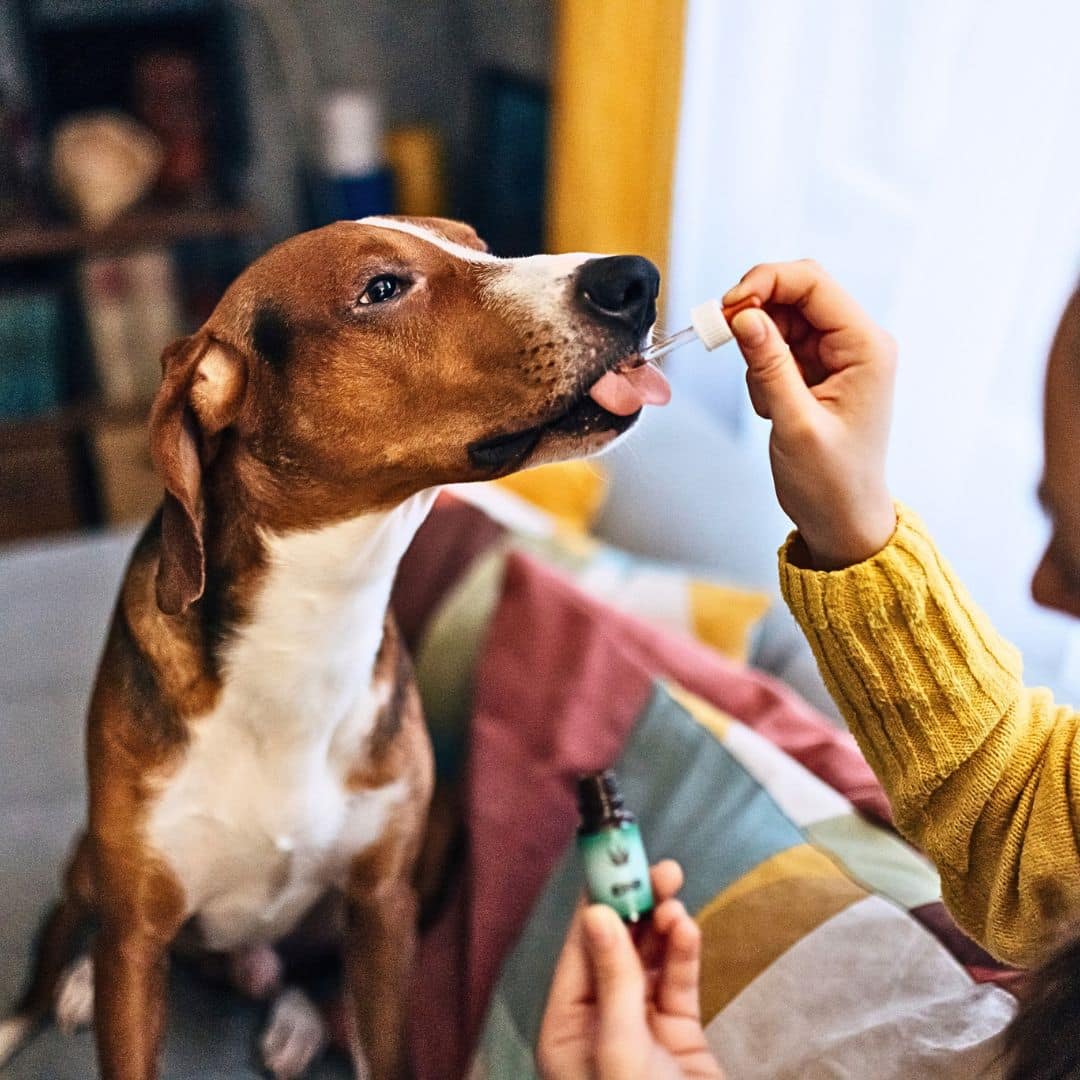What are “Dog Allergies”? 6 Signs You Have a “Dog Allergy to Dogs”
A dog allergy is an allergic reaction in which the body’s immune system responds to a substance and produces symptoms such as itching, swelling, or anaphylaxis.
Dog allergies may happen to a combination of substances in the Dog’s saliva, dander, urine, and fur.
These substances could be a protein from the Dog’s saliva that triggers an allergic reaction from the Dog’s dander that comes into contact with your skin.
Some of the most common Dog Allergies that affect people include:

1. Flea Allergy
A reaction that causes Itchiness and redness around the eyes, lips, nose and ears when exposed to fleas. The most common symptoms are sneezing, itchy eyes and nasal congestion. It can also cause dermatitis.
2. Grass Allergy
Allergic reactions to grass only appear in some people after they have exposed themselves to the hay-fever allergen. Symptoms may include a runny nose, sneezing, and itchy eyes and lungs.
3. Food Allergy
Allergic reactions are often associated with food allergies like hives, stomach cramps and vomiting, which occur when someone eats foods containing the allergy allergen and triggers an immune system response.
4. Food Intolerance
Food intolerance is not reactions to specific foods but to general foods. Common symptoms include abdominal pain and cramps, diarrhea, gas, bloating and Nausea.
5. Can you get Nausea from dog allergies?
Those with allergies will often suffer an allergic reaction to the animal’s dander. And saliva. Nausea is often a side effect of an allergic reaction to the animal’s dander and saliva.
6. What are the Sensitivities of dog dander?
Generally speaking, those sensitivities to animal dander will have an allergic reaction that can result in many symptoms. Some common signs people may suffer are itchy or watery eyes, a runny nose, a cough and asthma attacks. Those with severe allergies can suffer from serious anaphylaxis and require medical attention.
Finding Relief From Your “Dog Allergies!”

Having dog allergies can be challenging to find relief from the constant sneezing and itchy eyes.
We all know that dogs are great companions, but they can be a severe source of allergies. You can reduce your environmental exposure to allergens and help relieve your symptoms.
We have 10 Tips to help relieve your Dog Allergies.
1) Use a Neti pot
Neti Pots are small and can be used to rinse the nasal passages. Just fill a jar with warm water, add two or three drops of saline solution and breathe through it for about 10 minutes. It will help relieve congestion and relieve infection in your nose and sinuses.
2) Use an anti-histamine
Antihistamines are drugs that reduce inflammation in the body and fight allergies. They work by blocking histamine, an inflammatory agent. Some antihistamines also have anti-inflammatory and pain-relieving properties, which can help when you’re suffering from allergies.
3) Try using a humidifier
A humidifier will provide moisture to the air while fighting against dry, itchy skin and cracking.
4) Consider using a saline nasal spray
Saline sprays help clear congestion in the sinuses and can be used with antihistamines to relieve allergy symptoms.
5) Avoid pet dander:
Pet dander causes allergies. It includes dust, fur, saliva, and dead skin particles. The best way to avoid this is to keep your pets out when you’re not home or leave them inside at night.
6) Avoid dusty environments
Dusty environments can irritate your nose and cause a runny nose. These include carpeting, pet dander, and cigarette smoke. The best way to avoid this is to keep your house clean and avoid dusty environments.
7) Avoid people who are sick
People with colds, the flu, or other illnesses can quickly spread their germs to you. You should stay away from them if you’re feeling sick yourself.
8) Clean your nose daily
Blow it out through your mouth and wipe it so there’s nothing in there.
9) Practice Good Hygiene
Start by washing your hands while avoiding people who are sick.
10) Stay healthy
This includes getting enough sleep and exercising.
How can I get Tested for Allergies?

It would help if you mentioned your allergies to your doctor or allergist to determine which may affect you and where to focus treatment. Sometimes, a skin test is offered as part of this process to help recognize where the allergy is.
The test is on the forearm, but you could also do it on the back. It may be necessary to test for allergic reactions at certain levels of allergen concentrations.
Make sure your skin doesn’t have any allergic reactions. Ask your doctor or nurse to check you out after 15 minutes; they’ll ensure they’re complete before you continue.
If you’re experiencing redness or other adverse effects, stop scratching altogether and talk to your doctor. Rubbing too hard can cause permanent damage, so it’s best not to do that.
The environment can also cause Allergies.

Pet allergies are allergic reactions to proteins on an animal’s skin, saliva or urine. Depending on the severity of your symptoms, you may experience common hay fever symptoms, such as sneezing and a runny nose. Some people with mild to moderate pet allergies may experience asthma-like symptoms like wheezing.
Here are some tips:
- If you’re worried about allergies in your home, create an “allergy-free” zone. The pet’s bedroom is an excellent place to start; use high-efficiency HEPA filters and consider using impermeable covers for the mattress and pillows.
- Bathe your pet regularly to help prevent allergies and reduce the dander levels in your home. Talk to your vet about the safest way to bathe and use the products recommended.
- You are keeping your Distance. Don’t touch your dogs. Kiss a dog as best as possible; avoid going to friends’ homes who also have dogs. If they have dogs while staying in a house with a dog, ask if you can keep it out of the room you’ll sleep in for a few months before your arrival so it does not get filled with dander, which will cause Allergies.
- Use Medicine. If you know, you will be coming into contact with a dog. Start taking your medicine four weeks ahead. Taking preventative medication might stop an allergic reaction before it starts.
- Be Aware of if you are entertaining guests who have dogs. Otherwise, those last-minute house guests can bring the dander even with their dogs staying elsewhere, which can cause a lot of trouble.
Some of the above advice will only help if your Dog Allergies are already friendly in your home.
Clean Fanatically
- allergens get everywhere. It would help to clean regularly, especially with your vacuum and certain cleaning materials. It’s always best to vacuum with a HEPA filter as it helps to prevent allergens from getting back into the air and giving you trouble.
Make your home easier to clean.
- Reduce the number of toxins in your house that make it difficult for you to breathe. You can pull up your carpet, remove your drapes, and wash them to keep dust and dander down. It will help reduce dust mites as well as other allergens.
Filter the air.
- The central heat and air conditioning are expensive, but they can provide comfort and savings to help offset the cost. However, a central air cleaner and filters on the vents can help prevent dog dander from entering your home and other allergens like pollen.
Keep the Dog out of your bedroom.
- Since you spend a third of your day in your bedroom, keeping it free of allergens is best. Closing your bedroom door for a few minutes won’t guarantee that you’ll avoid allergens, but it will help.
Please keep the Dog from roaming free in your home.
- Make areas of the house dog-free too. Consider supporting the Dog outside as much as possible, depending on the climate and surroundings.
When should you see a doctor if your allergies get worse?

Suppose you have an allergy or the common cold. It’s sometimes difficult to know whether symptoms are from allergies or cold when you have a runny nose or sneezing. Signs must be present for over two weeks before making a possible diagnosis.
Seek emergency care if you experience symptoms like wheezing or shortness of breath rapidly worsening or if you are short of breath with mucous production.
Can Dogs Experience Allergies?
Dogs often scratch, chew, and paw at ears & and legs when they’re itchy. There could be so many reasons why your pup is struggling with this. You should make an appointment with the vet for a professional opinion, as treatment options are available, and it is all the stress of moving house!
Your pet may have allergies, so you should have them checked out by your vet. Various tests are available for your Dog to determine their allergies. If you’re unsure exactly what causes your Dog’s reaction, you should talk with your vet about other options.
For example, if your Dog has an itchy or swollen nose, it may be a sign of allergies to grass after playing outside for hours.
What Can Home Remedies Help Your Dog’s Allergies?
Having an allergy can be very difficult for your Dog. Fortunately, many things at home help ease their symptoms and provide supplements to help their immune system. Don’t worry. They won’t have an allergic reaction every time because there are many ways to keep their misery at bay.
There are ways to relieve your Dog’s symptoms with products you already have at home. Many of these solutions can be applied to yourself, which is how we know they are effective!
The health is good for all. “Apple Cider Vinegar.”
Braggs Apple Cider Vinegar is an excellent solution for many health problems, ranging from general aches & bruises to reducing pesky dermatitis and including with irritating skin from allergies.
A 50/50 ratio will be a great place to start with your Dog’s Allergies specific needs. Spray a mixture of Aloe and water on insect bites to relieve the itch and lessen swelling.
Apple Cider Vinegar
Apple cider vinegar is a natural product often used to repel fleas. However, it also offers other benefits, such as improving dog allergies. If your Dog has an allergic reaction such as scratching, sneezing, or a runny nose and a flea infestation causes it, this will be another benefit for you.
Dogs Health and “Coconut Oil”

Coconut oil is becoming increasingly popular at home because of its many benefits, including those with medical value. A lot of doctors recommend it & you only need a small investment. Another reason coconut oil is becoming increasingly popular among veterinarians is its many benefits for dogs besides its medicinal value.
Coconut oil is an excellent skin care product. It can be used topically on itchy spots and bites or even in your Dog’s coat! It is safe and even beneficial.
Coconut oil is excellent for allergies when used as a treatment. Adding a tablespoon to your Dog’s kibble is a perfect way for them to get it or freeze it for a fun frozen treat. They will LOVE the taste.
Oatmeal in a “Dogs Bath”
Oatmeal is a natural moisturizer that can help dry skin. If your Dog enjoys baths, this is an easy & effective way to provide relief. Oatmeal baths are a win-win. They help with dog allergies and are easy to use, so you can quickly make an oatmeal bath.
Fill the tub for your Dog. Depending on the size, one to three litres should do the trick. Soak your Dog in the bath for 10 minutes, rub its nose in some lotion, and towel it dry afterward.
Soothing your Dog with “Aloe Vera”
You reach for Aloe when sunburned because it has many soothing properties that can help. It also provides an excellent effect. You can use Aloe to soothe your pet’s irritated skin for many reasons. Some of these are that it is easy to use, easy to find, and good for allergies.
Daily Vitamin Supplements for Your Dogs Allergies
Dogs with allergies can benefit from nutrition-packed supplements. Research has shown that they can help boost your Dog’s immune response and keep them feeling healthy in a natural way. One of the symptoms of allergies is sneezing, coughing, and itching, which can lead to skin irritation and redness.
For this reason, it is good to have a supplement that contains ingredients like bromelain & nettle that are anti-inflammatory.
Vitamin E is a light, water-soluble oil that prevents skin damage and protects it from the effects of aging. It can help with many other skin issues but is particularly useful in treating inflamed areas of your Dog’s body.
Opening the pill’s capsule and applying it directly to the pain relieves discomfort. You can do this by rubbing it with your fingers or pressing on specific parts of your Dog’s body.
Nutrition
For essential nutrition, adding a capsule to your Dog’s food can be an easy and healthy way to boost its immune system.
Fish oil from cold water has more Omega 3s, the type of fats needed for good skin and many other benefits. There is a blend of sardines, anchovies, mackerel and herring, most likely to help calm your skin and reduce the effects.
Try Yogurt to Boost Immunity
Adding a bit of this yummy food to your pup’s meal can make all the difference in the fight against yeast or bacteria. Yogurt will help build immunity and boost your dog’s fighting ability with other dogs.
You should buy yogurt without xylitol or other sweeteners, or your Dog will be fine. Make sure you read up on things that might cause intolerance in dogs.
We all want to see the best for our Dogs, so adding small amounts of yogurt at a time can be helpful! If it is ineffective, try a different product with benefits like probiotics or other nutrients.
Chamomile Tea
Veterinarians often mix chamomile with other medications to treat inflammatory bowel disease in dogs. It’s best to be used orally at a lower dosage to relax overly contractive muscles and reduce spasms.
Chamomile tea has healing properties when applied to the dogs’ skin as a spray. It can help you relax, relieve insomnia and make your skin look better.
When Dog’s feet are dry, the paws can become irritated. When this happens, you must cool your pets off so their claws can maintain a healthy state and they won’t feel the burning sensation. One idea is to fill a bowl with cool Chamomile Tea water and rub it on your Dog’s paws.
Give your Dog an Epsom salt bath to calm Itchiness.
Epsom Salts are compounds made of Magnesium and Sulfate. It is a highly versatile substance that can be applied to many areas.
Epsom Salts to your Dog’s baths: Soak for five minutes twice a day in a tub of water mixed with 1/2 cup of Epsom salts, and soak for five minutes twice a day. This will help with skin allergies from Fleas and environmental allergies that cause sneezing, stomach pain, and infections.
Canines, like humans, can suffer from allergies to food, fleas, & and environmental allergens; when they occur, the symptoms vary from dry skin to sneezing and stomach ailments to infections. However, there are ways to prevent such problems.
Conclusion:
Canines, like humans, can suffer from allergies caused by food, fleas, & and environmental allergens. When they occur, the symptoms vary from dry skin to sneezing and stomach ailments to infections. However, there are ways to prevent such problems.
Pets are charming; these tips allow you to keep them without considering allergies. Even if you’re allergic to your beloved furry friend, having a happy future together is still possible.
Many solutions can allow Allergy issues to keep beloved pets while successfully managing their dog allergies. You’d be surprised to know how many people have allergies and keep their pets.






